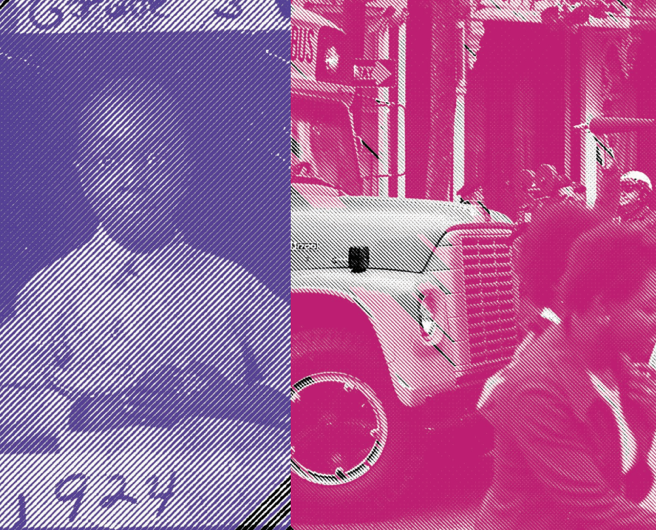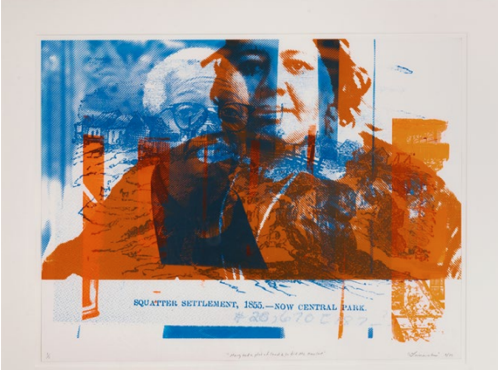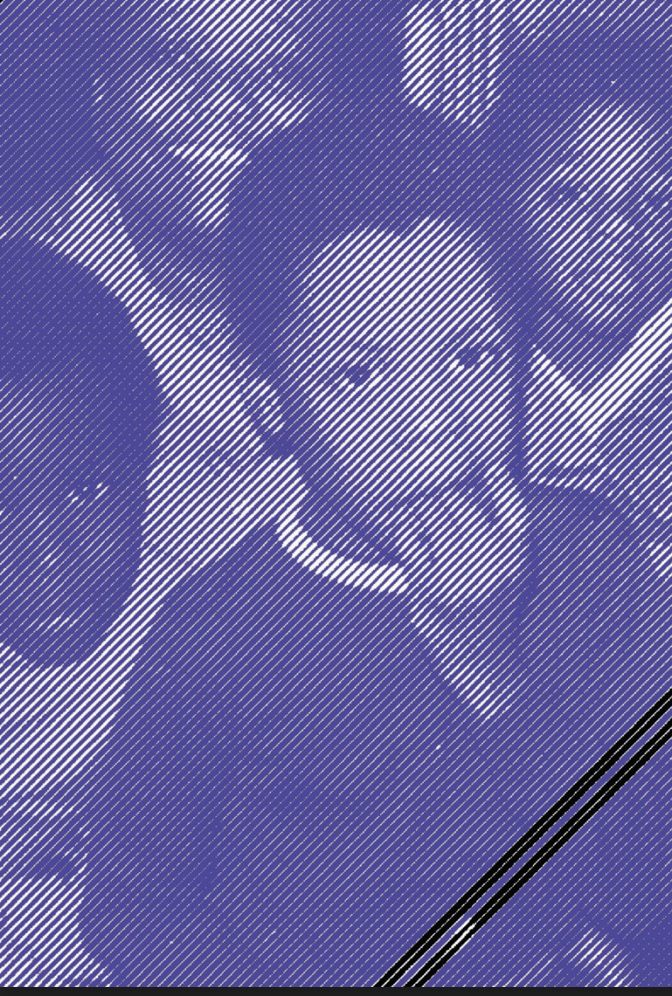



TOMASHI JACKSON
She/TheyTomashi Jackson, b 1980, Houston, Texas, is an artist based in Cambridge, Massachusetts. Her solo exhibitions include Brown II at the Radcliffe Institute for Advanced Study at Harvard University, Cambridge, Massachusetts (2021); The Land Claim at the Parrish Art Museum, Water Mill, New York (2021); Love Rollercoaster at The Wexner Center for the Arts, Columbus, Ohio (2020); Forever My Lady at Night Gallery, Los Angeles (2020); Time Out of Mind at Tilton Gallery, New York City (2019); Interstate Love Song at the Zuckerman Museum of Art, Kennesaw, Georgia (2018); and The Subliminal is Now at Tilton Gallery, New York City (2016). Her work was included in the 2019 Whitney Biennial and has been featured in group exhibitions at the Solomon R. Guggenheim Museum, New York; Moody Center for the Arts at Rice University; Los Angeles Museum of Contemporary Art; the Contemporary Arts Museum Houston; the Contemporary Art Center, New Orleans; and the Massachusetts Museum of Contemporary Art. Her work is included in the public collections of the Solomon R. Guggenheim Museum, the Whitney Museum of American Art, the Los Angeles Museum of Contemporary Art, the Baltimore Museum of Art, and the Studio Museum in Harlem. Jackson completed the Skowhegan summer residency and was a Resident Fellow at ARCAthens, Athens, Greece in 2019 and she has been the Inga Maren Otto artist in residence at the Watermill Center in 2021. She was awarded the Joan Mitchell Foundation Painters & Sculptors Grant in 2020. Tomashi earned her BFA from The Cooper Union School of Art, her MS in Art, Culture, and Technology, and her MFA from the Yale University School of Art. As a visual art education facilitator she has been visiting faculty in Art, Film, and Visual Studies at Harvard University, The Cooper School of Art, Rhode Island School of Design, Lesley University MFA in Visual Arts Program, and the Massachusetts College of Art and Design.
Website: https://www.jacktiltongallery.com/artists/tomashi-jackson
Artist Statement:
My work combines a practice based in painting and printmaking with archival research in the histories of law, urbanism, and social justice. My work interrogates the intersections between formal languages of visual art (color, composition, layering) and political languages driving the histories of segregation, voting rights, education, and housing in the United States. My work explores and activates these shared motifs of art and policy and brings the full power of both traditions to bear on historical engagement and critical action. Considering color as chromatic and social, I use visual strategies to investigate the interaction of color and its impact on the perceived value of human life in public space. With each project I seek to employ creativity and generosity in facilitating public engagement that is site specific and responsive to communities with the ideas that make the work.Project Description:
I would like to use the Boston Ujima Project Ashé Ashé Cultural Assembly Grant to fund the printing of a second edition of my project driven publication titled Brown II followed by strategic distribution and a series of four online reading and discussion events. While working with a team of Harvard graduate students throughout 2020 at The Radcliffe Institute for Advanced Study, I guided our group in producing a volume of research that animates the legal and social implications of the Brown v. Board of Education of Topeka, Kansas II (Brown II) decision of 1955 with emphasis of this history in the Greater Boston area. Brown II was the implementation case that followed Brown v. Board of Education of Topeka, Kansas in 1954.
Throughout the pandemic lockdowns of 2020 my team and I facilitated 8 interview conversations with Matt Cregor, staff attorney, Mental Health Legal Advisors Committee, Tomiko Brown-Nagin, dean of Harvard Radcliffe Institute, Daniel P.S. Paul Professor of Constitutional Law at Harvard Law School, and professor of history in the Faculty of Arts and Sciences at Harvard University, David J. Harris, managing director, Charles Hamilton Houston Institute for Race & Justice, Harvard Law School, Donna Bivens, education justice coordinator and director of the Boston Busing/Desegregation Project, Union of Minority Neighborhoods, Nia K. Evans, director, Boston Ujima Project, Rashida Richardson, director of policy research, AI Now Institute, Meredith Whittaker, Minderoo Research Professor, New York University, and co-founder and co-director, AI Now Institute, and Sabelo Mhlambi , technology and human rights fellow, Carr Center for Human Rights Policy at Harvard Kennedy School, and fellow, Berkman Klein Center for Internet & Society at Harvard University.
Each discussion has been edited and excerpted for publication and is accompanied by original drawings made during each meeting and images from the personal picture archives of Ruth Batson and Pauli Murray held at the Schlesinger Library for the History of Women in America. A part of the book's purpose is as a curricular referent for displaced learners and displaced historic narratives on this subject matter. (The PDF version of the publication init's entirety is attached as my work sample.)For my Ashé Ashé Cultural Assembly project I would like to work directly with Ujima communications and cultural staff to distribute 200 of these books among Ujima community members and partner orgs with a focus on Black Queer Feminist centered efforts. Once the texts have been received by mail, I would like to work with Ujima to facilitate four Book Club Assemblies via zoom where we can read aloud together from two interviews and discuss them with pairs of the interviewees. The assemblies would take place over four months during Winter and Spring of 2022.
I believe my project would resonate with BIPOC communities in Boston because the centerpiece inspirations for the research effort are Ruth Batson and Pauli Murray both of whom devoted their lives to the pursuit of educational equity and personal freedom for BIPOC and LGBTQIA+ communities. A number of my discussants narrate their own histories of law, organizing, and education right here in the Greater Boston Area.
I am eager to bring those people together for the first time to hear their words read aloud by community members and for all of us to then be able to discuss all that comes from these reflections and future visions with them in real time.
I have been greatly inspired by the Boston Ujima Project's Black Trust: Chuck Turner Arts and Lecture Series and by decades of work among The Combahee River Collective. Through this project I want to learn more. I believe that a publication that is placed in peoples' hands and libraries with intention and purpose can be a unifying archival object to value and prompt more focused and meaningful interactions. Thinking of culture as the things that we do the most regularly, I very much want to imagine the scope of such purposeful placement with Boston Ujima Project as culturally expansive and generous serial effort in the form of a Book Club Assembly! Thank you sincerely for your consideration.